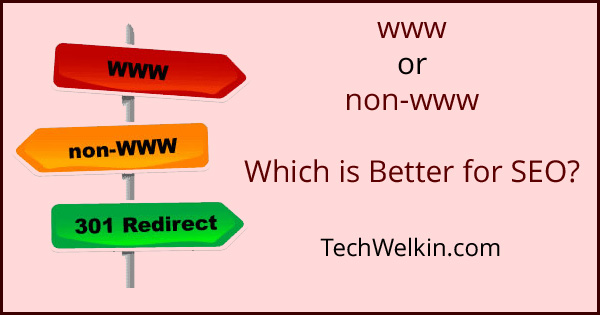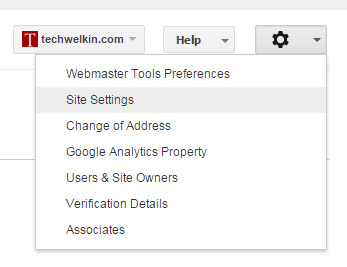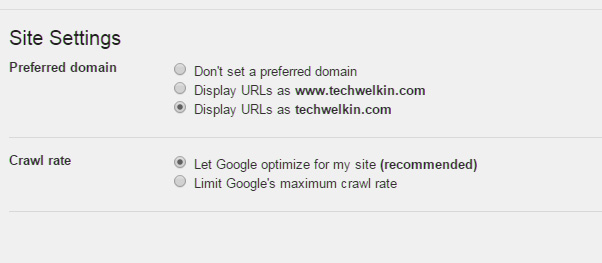Let me be straight to the point in the beginning. Both www and non-www URL formats are equal. Neither is better than the other. So, you can use either of the format, it’s totally your personal choice. But it is highly recommended that you use only one format. Either stick to www or consistently use non-www format. Google Webmaster tools allow you to set your preferred domain (http://www.example.com or ). And therefore Google states that it does not care which one you use. There are two distinct aspects of this issue. One is SEO aspect and the other is technical (DNS stuff). Let’s examine them further. I know you still want to ask, “ok, all that is fine, but still which format is really better?” Well, as I said, it all depends on personal preference. All I can do is to tell you a few more bits of important information. Then you can decide for yourself. www URL format is better because most people remember URLs that way. “www” is etched in people’s memory and most people who are not tech-savvy, often speak and write URLs beginning with www. Therefore, www format has a mnemonic advantage over non-www. non-www format is shorter. So, it requires less efforts and occupies less space. Honestly, for me typing three Ws is irritating. Therefore, I love to use non-www format! Yes, it is as simple as that! The non-www URLs are often referred to as the naked URLs. And naked domain names can not have something called a CNAME record. If your website is small (that would include websites with millions of pageviews per month) then there is no problem. But if your website is massive (millions of pageviews per day) then you may require to deploy redundant hosts. Redundant hosts are computer servers that all keep a copy of your website. If one of these machines gets overloaded with traffic, the traffic is automatically redirected to the other machine in the array. These redundant hosts are defined using CNAME records. But because non-www domain can not have a CNAME record, you will not be able to set it all up! There is another reason that makes URLs with www better than the non-www URLs is how cookies are served. If you’re interested, you can read a good explanation on yes-www.org website. All this technical superiority of www format will arise only when your website will become a mega website. Until then you can be rest assured that www vs non-www issue does not affect your website’s performance or ranking. “What? Canonicalization? What on the earth is that?!” Most newbies ask this question! The word indeed sounds weird. I had to practice it to be able to pronounce it correct. And still I hardly can speak this tongue-twister. Anyway, canonicalization is the process through which a search engine decides which URL to select and keep in its index. As Matt Cutts has explained it, if there are several URLs, all pointing to the same resource, canonicalization process decides which one of these URLs is best. For example, all of the following URLs may point to the same resource:
www.example.com example.com/ www.example.com/index.html example.com/home.asp
How does Google decides which URL to pick? Only Google knows! But one thing is certain, Google does give a lot of importance to the most consistent format. That is why consistency in URL format is important. Two important tools can help you in achieving the said consistency. One is, of course, Google Webmasters Tools. Here you can select preferred domain for your website. Just log into Google Webmaster Tools and then go to Site Settings by clicking on the wheel icon: In Site Settings, you can make your choice of preferred domain. If you are running a self hosted WordPress website, the second tool which can make you life easier is WordPress SEO by Yoast. This superb plugin allows you to setup a preferred domain name and then output all the URLs only in that chosen format. If you have been using non-www format and now want to change it to the www one; you should setup a 301 redirect so that your links remain valid. Do not panic! Either of the format is equally good. Even Twitter uses the non-www format (naked domain). So not worry and just focus on producing good stuff for your website or blog. And you’ll be all fine! I hope it was useful information for you. Please feel free to ask if you have any questions. Thank you for using TechWelkin. My site URL is with www and without www both domain open. please tell me its right way from SEO point of view? Another advantage of having non-www domain is, it doesn’t slow down the page slightly when someone uses non-domain, as with www, they are subjected to redirection to www version. The delay is really subtle ,like less than 100ms, but if you really care about the site loading time in milliseconds, then it’s better stick to non-www and use a separate domain to host static contents like twitter does to improve the page load time, while preventing the cookie leaking. I honestly prefer non-www version, because it’s easy to remember, people usually use it, no redirection (read about landing page redirects), give a legit look. Of course it may be an issue when the site is getting bigger, but if twitter manages it, I am sure it wouldn’t be a problem to anyone. Google probably uses it because they have been using it for decades, but twitter is relatively a new site, so www part is unnecessary because of the latest technology. Really after reading your blog it all became clear to me. I was searching for answer on Google and I came across your blog TechWelkin. Really I got a perfect answer. Thanks for share with us. Comment * Name * Email * Website
Δ



